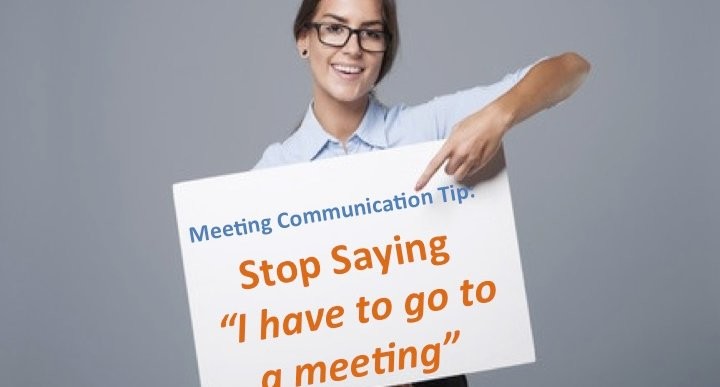Would you like to be taken more seriously by your leader? Are you looking to enhance your influence and make a bigger impact on your organization’s goals and objectives? Are you seeking to garner the attention, authority, and respect you have earned? Would you like others. especially your leaders, to see you as a motivated, engaged, and high-value team player who is ready to take on even more opportunities?
If so, meetings and other group conversations present a fabulous opportunity to shine. Chances are, you are doing the basics:
- You are well prepared.
- You participate readily and with confidence.
- You follow-up on your action items.
- You are supportive and open-minded to the contributions of others.
- You stay focused on the subject at hand and don’t engage in disruptive behaviors.
However, are you making the most of the opportunity to shine even before the meeting starts? Here are some powerful strategies to leverage.
- Words to choose and words to lose. Stop using the phrase “I have to go to a meeting” and change it to “I get to go to a meeting.” When you use the phase “have to” it makes it sound like it is something you don’t want to do. It can give the impression that others choose for you and you are not empowered or in charge of your own choices. It might even signal to some that you have a “victim mentality.” When you make this small change and start to say “I get to” you send a message that you are excited and are glad to be part of the meeting. You sound empowered, positive, and engaged. This is a small change that can make a big difference in how you are perceived by others. Be intentional in your word choice because words matter.
- Get on the agenda. Not every meeting or conversation has an agenda (although most meetings ought to if they want to be effective.) When there is an agenda, maximize that opportunity. If you have a proposal you want to make, a question you would like to pose, or solution to a problem, or any other meaningful contribution you want to make during the meeting, contact the person running that meeting and ask for some agenda time. They may not give it to you. However, simply asking shows that you are engaged and ready to participate proactively. This is especially important if the person running the meeting is your leader. Don’t wait for them to assign you something. Be proactive. Ask yourself, “what meaningful contribution to this meeting can I make?” And, ask for agenda time if appropriate. Even if you opt not to ask for agenda time, asking yourself “what meaningful contribution can I make?” can help position you to participate in a meaningful and impactful ways. When I work with executives who are looking for their team members to enhance their communication skills, one of the #1 requests is “please help my team members take more initiative, take more ownership, be more proactive.” Get on the agenda and you will be demonstrating leadership abilities and be seen as more proactive and engaged.
- Arrive early. There are many good reasons to be slightly early to every meeting. You minimize the risk of arriving late due to be waylaid in the hallways. You increase the chances of getting a good seat in the room. You will be seen as reliable, respectful, and engaged. And, you can leverage those few minutes to your advantage. Put away the cell phones (even if you are standing in the hall waiting for the conference room to be vacated by the previous occupants) and engage in conversation with others who have arrived. Stop texting and introduce yourself to people you may not know. Ask a colleague how a project is progressing. Make small talk. Look people in the eye. Smile. Be friendly. Be professional. Be present. You will create a memorable impression by having short conversations with those around you. Building your professional network is important and meetings are a great place to do so. Get to know people and you can easily do that in 5 minutes or so when you arrive early.
Meetings present a tremendous opportunity for you to shine. Make the most of the opportunities you have to communicate in a confident, professional, and engaged fashion.
Pamela Jett is a communication skills and leadership expert who knows that words matter! In her keynote presentations, workshops, books and online learning programs, she moves beyond communication theory into practical strategies that can be implemented immediately to create the kind of leadership, teamwork, and employee engagement results her clients want.

